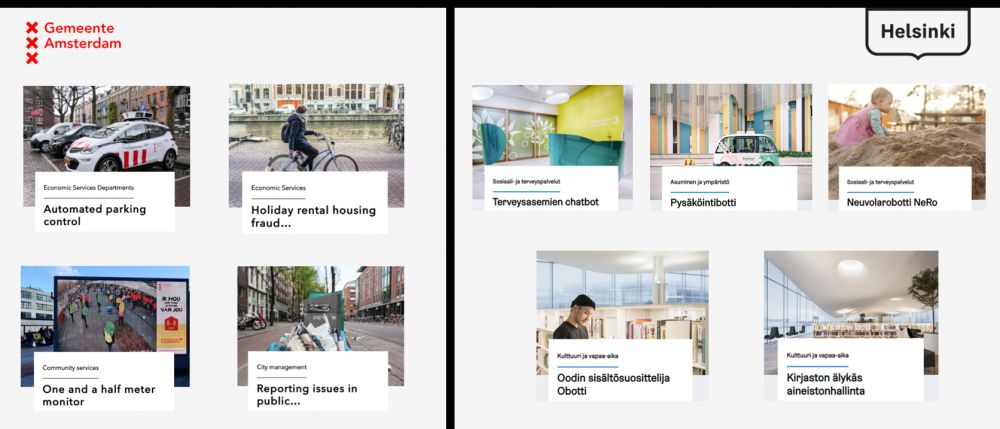From frameworks to action! - Amsterdam and Helsinki’s AI registries
23 November 2020
In last week’s city update, we shared with you the milestone of launching an AI registry in Amsterdam and Helsinki. But how did it come to be and what were our thoughts behind it?
Algorithms and artificial intelligence have become an integral part of our daily lives. Governments use algorithms to e.g. improve the accessibility and experience of their services, to optimise processes, or to manage public space.
In the cities of Amsterdam (video) and Helsinki alone, more than thirty AI projects are taking place at the moment. However, regular citizens, each one of us, still have limited access to understand, participate in and debate about these developments.
Democratic governments are open and allow the public to voice their opinions on government activities and the use of public authority. We believe this should apply not only to human actions, but also to the ways we automate those actions with the help of algorithms. Every citizen should have access to understandable and up-to-date information about how algorithms affect their lives and the grounds on which algorithmic decisions are made. It is no wonder transparency is referred to as the most cited principle for trustworthy AI.
About the AI register
Check out the City of Amsterdam Algorithm Register and City of Helsinki AI Register. Both registers are enabled by Saidot’s AI transparency platform.
The AI register is a standardised, searchable and achievable way to document the decisions and assumptions that were made in the process of developing, implementing, managing and ultimately dismantling an algorithm. With this, transparency, and when applicable, explainability, can be given for public debate, independent auditors, and individuals citizens.
For the people in our cities, it is a window into the artificial intelligence systems used by us. Ultimately, we hope it will become a catalyst for meaningful democratic participation and a platform for fostering mutual trust.
Helsinki and Amsterdam built on existing frameworks and suggestions raised in various AI ethics and human-rights related research. The cities took it a step further and made it actionable and usable by launching the AI registries.
We hope the registries will inspire active civic participation and help us to further align our AI with the values of the people we serve.
All news
